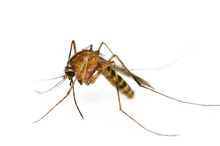In a news release, the New Hampshire Department of Health and Human Services (DHHS) has announced positive test results for eastern equine encephalitis (EEE) in two emus in the Cheshire County town of Fitzwilliam and in a horse in the Hillsborough County town of Derry.

Positive EEE tests in horse and emus
Two emus and a horse test positive for Eastern equine encephalitis in New Hampshire.
These findings necessitate the elevation of the risk level in those communities from “remote” to “high.” The risk level for surrounding towns will also be elevated on the risk map to “moderate.” In addition the towns of Seabrook, South Hampton, and Newton have all had their risk level elevated to moderate following the identification of a person in the northeastern part of Massachusetts with EEE.
“These results highlight the fact that these illnesses affect not just mosquitoes, but animals and of course people too,” said NH’s Public Health Director Dr. José Montero. “It is also an indication that mosquitoes do not respect borders, and as a result can infect animals and people in any corner of our State. We know this has been a particularly bad season for both EEE and West Nile Virus (WNV). In fact, in our bordering states there have been several deaths reported as a result of EEE.”
So far this season NH’s Public Health Lab has tested 4,018 batches of mosquitoes. Of those, 40 have tested positive for WNV, 3 tested positive for EEE. One person was also diagnosed with WNV. The test results being announced today are the first animals found positive for EEE and there have been no positive tests for animals with WNV.
“We want people to remember that until we have a Statewide hard frost, there is still a risk of contracting these illnesses from mosquito bites. We advise people to take appropriate measures to prevent being bitten,” stated Montero.
EEE is a serious disease that carries a high mortality rate for those who contract the serious encephalitis form of the illness. Symptoms may include high fever, severe headache, stiff neck, and sore throat. There is no treatment for the disease, which can lead to seizures and coma.
Symptoms usually occur 4 to 10 days after being bitten. Symptoms of WNV disease often appear 4 to 10 days after being bitten. If you or someone you know is experiencing flu-like symptoms, including fever and headache, contact your local medical provider.
